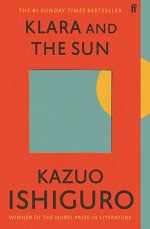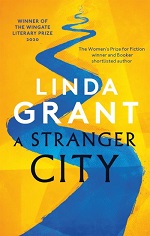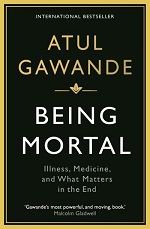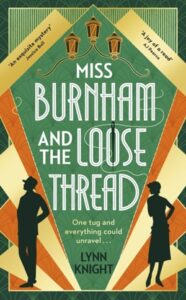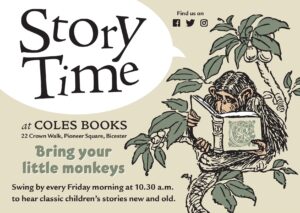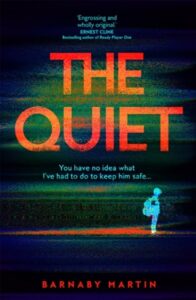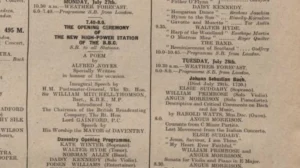‘What was that book featured on the radio the other day?’
BBC Radio 4’s ‘A Good Read’ with Harriett Gilbert this week featured Psychotherapist writer Philippa Perry and Professor of Neuroscience Anil Seth – both talk with Harriett Gilbert about their favourite books.
Anil Seth chooses ‘Klara and the Sun’ by Kazuo Ishiguro
From her place in the store, Klara, an Artificial Friend with outstanding observational qualities, watches carefully the behaviour of those who come in to browse, and of those who pass in the street outside.
She remains hopeful a customer will soon choose her, but when the possibility emerges that her circumstances may change for ever, Klara is warned not to invest too much in the promises of humans.
In Klara and The Sun, Kazuo Ishiguro looks at our rapidly changing world through the eyes of an unforgettable narrator to explore a fundamental question: what does it mean to love?
Philippa Perry chooses ‘A Stranger City’ by Linda Grant
When a dead body is found in the Thames, caught in the chains of HMS Belfast, it begins a search for a missing woman and confirms a sense that in London a person can become invisible once outside their community – and that assumes they even have a community. A policeman, a documentary film-maker and an Irish nurse named Chrissie all respond to the death of the unknown woman in their own ways. London is a place of random meetings, shifting relationships – and some, like Chrissie intersect with many. The film-maker and the policeman meanwhile have safe homes with wives – or do they? An immigrant family speaks their own language only privately; they have managed to integrate – or have they? The wonderful Linda Grant weaves a tale around ideas of home; how London can be a place of exile or expulsion, how home can be a physical place or an idea. How all our lives intersect and how coincidence or the randomness of birth place can decide how we live and with whom.
Harriett chooses ‘Being Mortal’ by Atul Gawande
For most of human history, death was a common, ever-present possibility. It didn’t matter whether you were five or fifty – every day was a roll of the dice. But now, as medical advances push the boundaries of survival further each year, we have become increasingly detached from the reality of being mortal. So here is a book about the modern experience of mortality – about what it’s like to get old and die, how medicine has changed this and how it hasn’t, where our ideas about death have gone wrong. With his trademark mix of perceptiveness and sensitivity, Atul Gawande outlines a story that crosses the globe, as he examines his experiences as a surgeon and those of his patients and family, and learns to accept the limits of what he can do. Never before has aging been such an important topic. The systems that we have put in place to manage our mortality are manifestly failing; but, as Gawande reveals, it doesn’t have to be this way. The ultimate goal, after all, is not a good death, but a good life – all the way to the very end.

